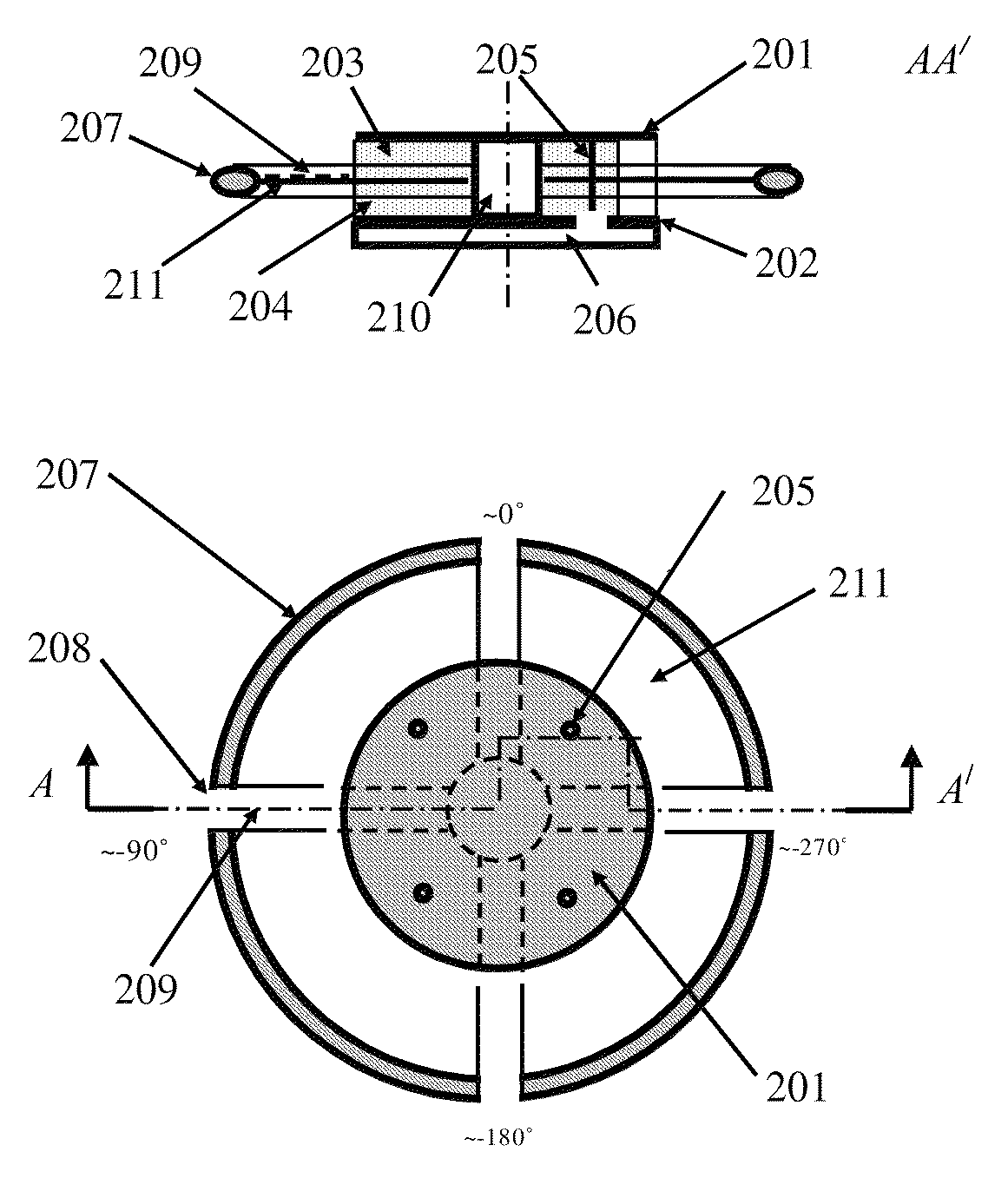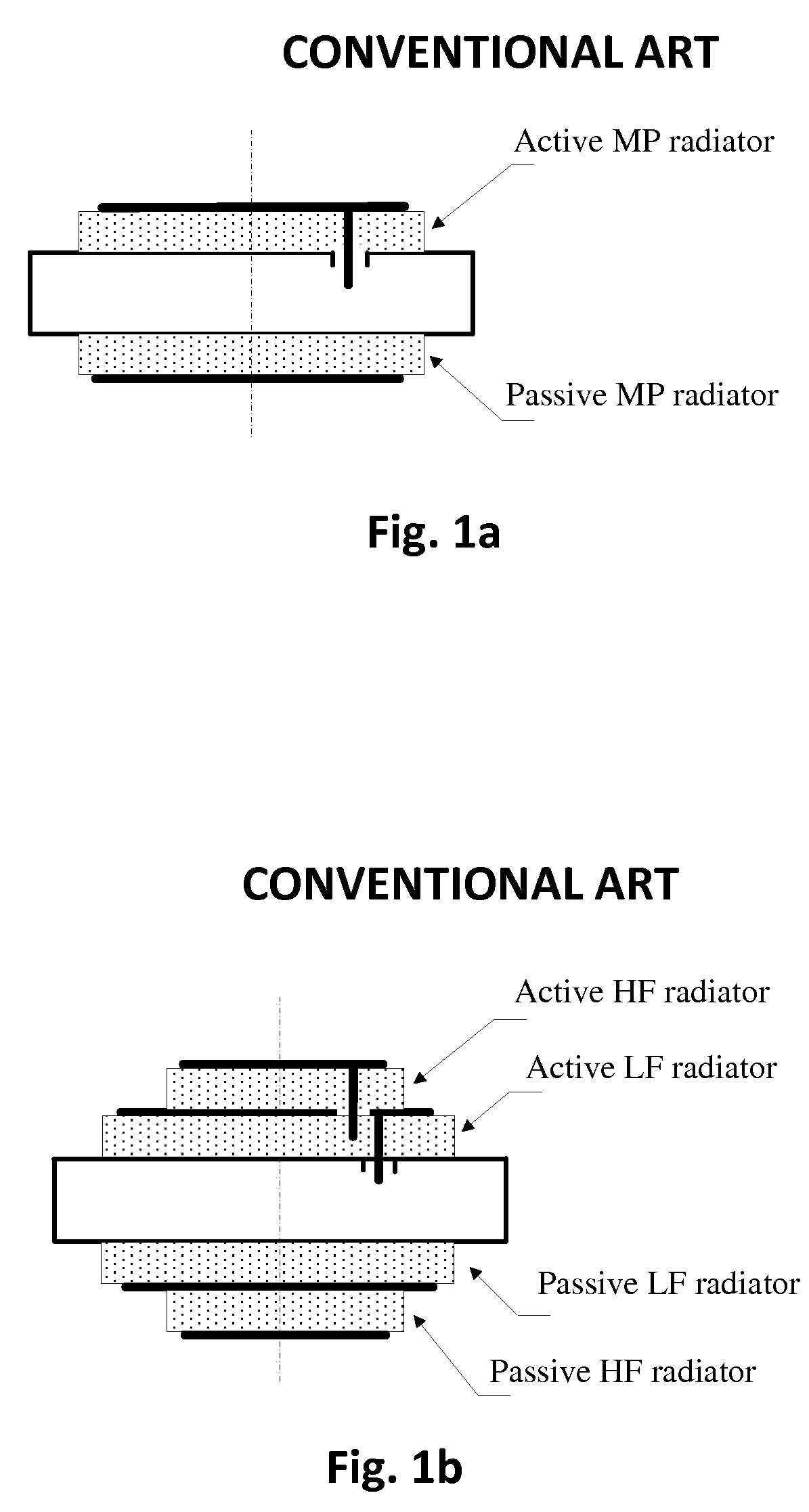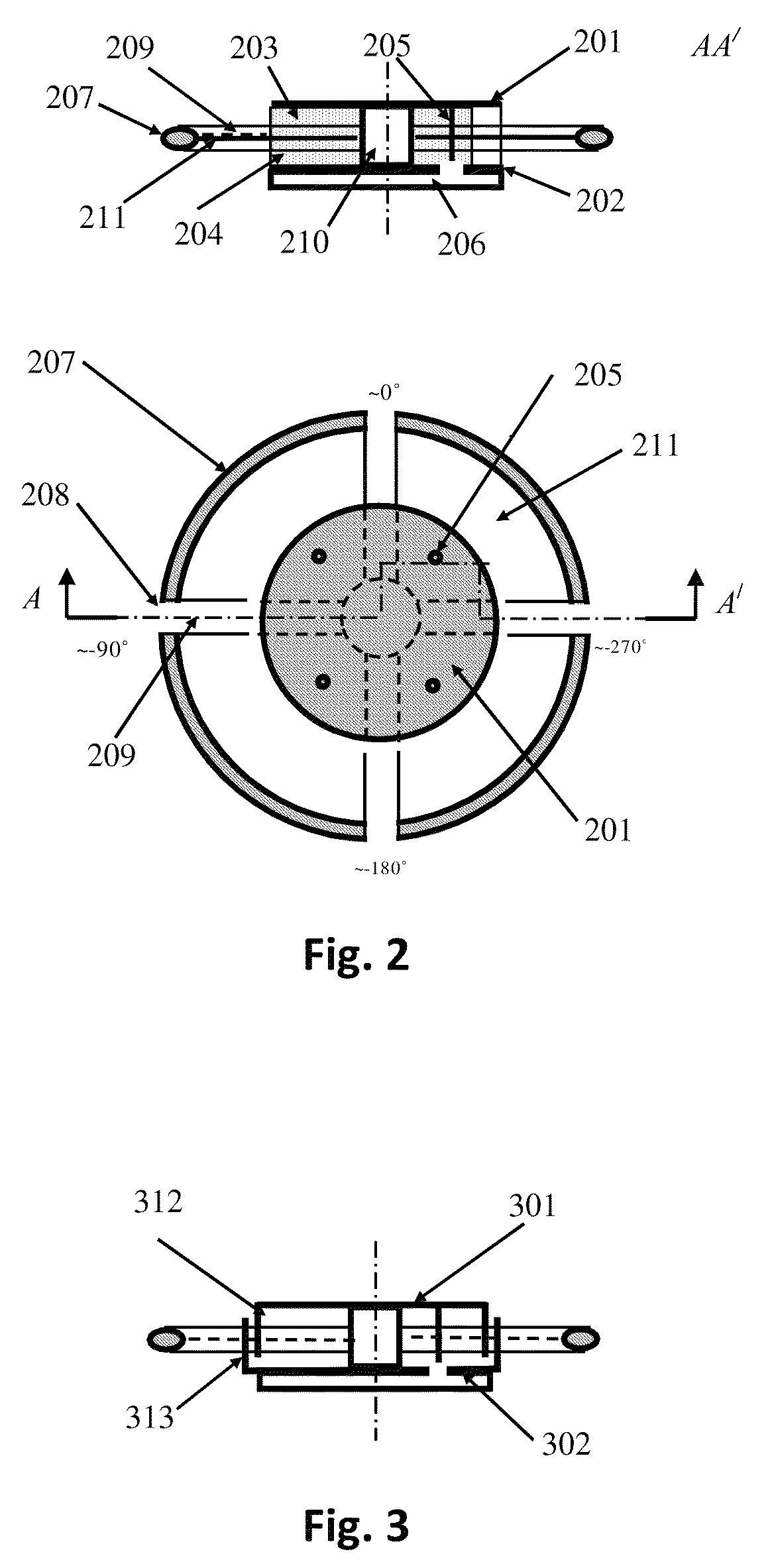Compact circular polarization antenna system with reduced cross-polarization component
a circular polarization antenna and component technology, applied in the field of antennas, can solve the problems of increasing the antenna dimension, reducing the coupling and excitation level of the passive radiator, and affecting the operation efficiency of the antenna
- Summary
- Abstract
- Description
- Claims
- Application Information
AI Technical Summary
Benefits of technology
Problems solved by technology
Method used
Image
Examples
Embodiment Construction
[0041]Reference will now be made in detail to the embodiments of the present invention, examples of which are illustrated in the accompanying drawings.
[0042]This described apparatus suppresses LHCP field in a wide angle sector of the rear hemisphere and reduces overall antenna dimensions. This is achieved by an antenna design comprising a MP radiator and an additional radiator in the form of a conductive loop disposed around and coaxially with the main MP radiator. Suppression of radiation in the rear hemisphere is the result of field interference of two radiators. The dimensions of the antenna are smaller than that of the conventional design.
[0043]Below there are given variants of antenna design with active and passive excitation of the loop radiator.
[0044]FIG. 2 shows an antenna design with an actively-excited loop radiator. The design includes a MP radiator, which comprises radiating patch 201 disposed above flat metal ground plane 202. Between them there is a layer filled with a...
PUM
 Login to View More
Login to View More Abstract
Description
Claims
Application Information
 Login to View More
Login to View More - R&D
- Intellectual Property
- Life Sciences
- Materials
- Tech Scout
- Unparalleled Data Quality
- Higher Quality Content
- 60% Fewer Hallucinations
Browse by: Latest US Patents, China's latest patents, Technical Efficacy Thesaurus, Application Domain, Technology Topic, Popular Technical Reports.
© 2025 PatSnap. All rights reserved.Legal|Privacy policy|Modern Slavery Act Transparency Statement|Sitemap|About US| Contact US: help@patsnap.com



